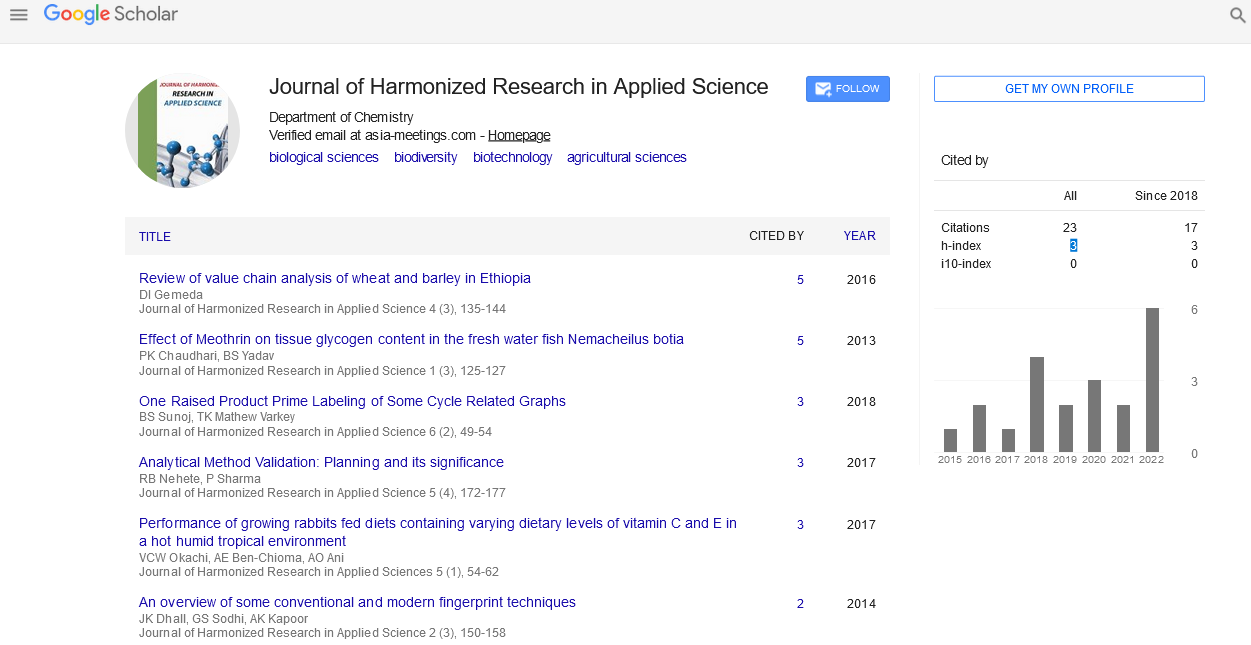HAEMATOLOGICAL INDICIES, CARCASS YIELD AND ORGAN WEIGHTS OF GROWING RABBITS FED DIETS CONTAINING VITAMINS C AND E IN A HOT HUMID TROPICAL ENVIRONMENT
Abstract
Author(s): Growing rabbits, haematology, carcass yield, organ weights
An eight-week study was conducted to determine the response of growing rabbits to varying dietary levels of vitamins C and E under a hot humid tropical environment. Thirty-six hybrid (Chinchilla × Ne w Zealand white) growing rabbits of both sexes with initial average weight of 0.80 kg were randomly divided into nine groups of four rabbits each and assigned to 9 diets a in a 3×3factorial arrangement involving three vitamin C levels (0, 200 and 400mgkg-1diet) and three vitamin E levels (0, 200 and 400mgkg-1diet) in a completely randomized design. Each treatment was replicated 4 times with one rabbit constituting a replicate. Data were collected on haematology and carcass characteristics. Results showed that haemoglobin concentration (Hb), red blood cell count (RBC), white blood cell count (WBC), packed cell volume (PCV), mean cell haemoglobin (MCH) and differentials (neutrophils, lymphocytes, monocytes, eosinophils and basophils) were significantly (p<0.05) affected by dietary treatments, while mean cell haemoglobin concentration (MCHC) and mean cell volume (MCV) were not significantly (p>0.05) affected by the dietary treatments while the white blood cell count (WBC) of rabbits on treatments 5 and 7 increased significantly.Treatments had significant effects on the carcass traits (live weight, carcass weight and dressing percentage) but had no effect on organ characteristics of the rabbits. It was concluded that a combination of 200mgkg-1diet of vitamin C and 200mgkg-1diet of vitamin E can be successfully added to the diet of growing rabbits during the dry season, without having any negative effect on their carcass yield, relative organ weights and haematological parameters.










